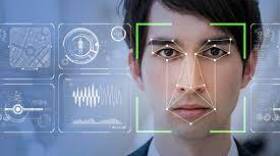In an effort to stop the Internal Revenue Service from ever using facial recognition technology, United States Representative Bill Huizenga announced new legislation this week that bans the IRS from storing biometric data as well.
US Congressman Bill Huizenga introduced the Ban IRS Biometrics Act in Washington on Tuesday, which would stop the Internal Revenue Service from “collecting, using, or storing an type of biometric data.”
The new bill follows in the footsteps and expands on the FACE Act, legislation introduced earlier this month by the Zeeland Republican that would prohibit the IRS from requiring facial recognition software to access basic IRS services.
Huizenga says the new legislation is in response to what he calls “overreach” by the federal government and the IRS, and the bills are getting bi-partisan support.
“Too often we have seen the federal government creep further and further into the private lives of Americans,” said Congressman Bill Huizenga. “The Ban IRS Biometrics Act is a common sense approach to strengthen privacy protections for Americans while stopping blatant and invasive overreach by the federal government.”
Specifically, the Ban IRS Biometrics Act defines the term ‘biometric information’ to mean information regarding any measurable physical characteristic or personal behavioral trait used to recognize the identity, or verify the claimed identity or location, of an individual, including facial images, fingerprints, and iris scans.
Co Sponsoring the Bill is Senator Rick Scott of Flordia.













